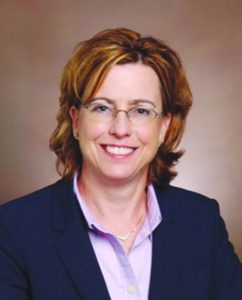EARTH IN CRISIS: For The Love Of Parks
On Nov. 2, Send A Message To Our City’s Leaders
By Tracey MacDermott
Chair, GPHC, Inc.

On Nov. 2 Denver voters will decide on two competing ballot initiatives that directly impact the 155-acre Park Hill Golf Course land. In simple terms, Ordinance 301 asks voters to maintain its taxpayer-funded conservation easement. Ordinance 302 ask voters to cancel the conservation easement, paving a path forward for a massive development project.
The Park Hill Golf Course land is adjacent to Interstate 70. A few miles to the west, residents of the Elyria-Swansea and Globeville neighborhood live in the most polluted urban ZIP code in the country, breathing in smog and exhaust generated by nearby transportation and industry. Further north, in Commerce City, a planned I-270 expansion project has many residents worried about worsening air quality and traffic — similar concerns as to those along I-70, who also have suffered from poor air quality for decades.
During the ongoing I-70 expansion project the Colorado Department of Transportation offered new windows and air conditioning to 200 nearby homes. With rising temperatures across our planet and residents needing to shut windows due to construction, air conditioners are critical. However they consume a large amount of electricity and the fluorocarbons in the units deplete the ozone layer and contribute to the global warming emergency.
In 2014, a study by Denver Environmental Health found that “residents of Globeville and Elyria-Swansea experience a higher incidence of chronic health conditions such as cardiovascular disease, diabetes, obesity, and asthma than other Denver neighborhoods.” Both communities are primarily Hispanic. In another recent study, children in both neighborhoods reported that they are physically active in both school and outside of school, but the daily frequency and minutes per day in physical activity are lower than the recommended guidelines of 60 minutes or more per day.
In August, the Denver Gazette reported that residents in North Denver and Commerce City recorded higher levels of fine particle pollution than any city in Colorado during the previous three months. In 2011 — fully 10 years ago — Health Today published a study concluding “that children with better access to parks and recreational resources are less likely to experience significant increases in attained [Body Mass Index].”
Now let’s talk about equity, defined by Denver’s own Vision for an Inclusive City. Everyone, regardless of who they are or where they are from, has the opportunity to thrive … to be as healthy as possible. To attain equity, government agencies should intentionally support policies, as well as deliver public services that promotes health equity and eliminates institutional biases and barriers.
In 2002, the city of Denver adopted Blueprint Denver, a citywide land use and transportation plan. One of its goals is to “guide growth to maintain connections to the outdoors, respond to climate change and protect our environment and natural resources.” Another is to promote a healthy community with equitable access to healthy living for all residents.
To help achieve that, Blueprint Denver identifies many needs, including expanding access to fresh food and produce and reducing or mitigating environmental pollution impacts, particularly on vulnerable communities. “Climate change threatens the city’s vision for equity since its devastating effects have a disproportionate impact on our most vulnerable populations.”
Finally, let’s talk about parks. The National Recreation and Park Association is just one of many organizations that identifies the critical role that parks play in mitigating climate change, including by reducing harmful carbon pollution. Parks mitigate the heat island effect, minimizes flooding, improves air quality, cleans the air and enhances opportunities for humans to recreate.
So what do Ordinances 301 and 302 on the Nov. 2 Denver ballot have to do with our neighbors, or with parks and the climate crisis that is staring us in the face?
If Denver is serious about making Blueprint Denver more than just a document, its leaders — or at least its citizens — must make bold decisions to mitigate climate change and prioritize our public health.
By approving 301 and rejecting 302, voters can send a clear message that we support the conservation easement that protects the Park Hill Golf Course. We can push our city’s elected leaders to reimagine its 155 acres as a regional park that will help improve the health of many neighborhoods, provide a place for community-supported agriculture, a place to recreate, and help mitigate our many related climate issues.
Keep it open space.
Tracey MacDermott is chair of the board of Greater Park Hill Community, Inc. She was trained as a Climate Reality Leader in 2017, and is currently the Statewide Co-Chair of the Climate Reality Project for the 100% Committed Campaign.
